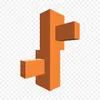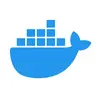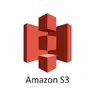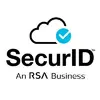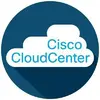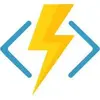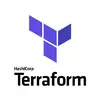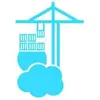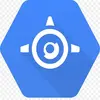
Pagoda Box
Pagoda Box is an object-oriented hosting framework that comes as a platform or service built for PHP. The platform uses a progressive infrastructure, a system that can support users and enables users to upgrade a site without interrupting anything.
Moreover, users only need to push or clone the Git repositories to the servers in order to become live. The platform offers Box files to helps users customize their environment, and users can use these files when their projects require some version of PHP or pre-configuration.
Moreover, it offers a simple admin panel that allows users to manage their resources and helps in monitoring the changes quickly. Pagoda Box enables users to control the load balancers, and other such things are handled automatically at the click of a button. Lastly, the SFTP is available as Vintage mode and offers a free piggyback SSL.
Pagoda Box Alternatives
#1 AWS Elastic Beanstalk
AWS Elastic Beanstalk is an amazing tool to scale different web applications based on .NET, Java, Node.js, PHP, Go, Docker, Ruby, and Python. This process will be done on just a few of the top servers like Nginx, IIS, Apache, and Passenger. All users need to upload the program code on this platform and leave the rest to it.
The best thing about this platform is that it does not charge you for its services. This is the best platform for even beginners towards apps deployment. Even users need not restructure the code or build up infrastructure before using the code because all of this process will be done right here without requiring the user’s involvement.
#2 Docker
Docker is a tool specially designed to make it easier to create, deploy and run applications using the containers. This tool enables developers to package up an application with all parts it needs, including libraries and other dependencies. It’s a powerful innovation engine that also allows developers to modernize flawlessly and reduce the total cost of operation. It brings unique techniques not intended with the earlier technologies. It addresses many infrastructure and applications issues enabling all the developers and IT professionals to handle operations at scale.
Docker offers prominent features such as universal packaging, a complete developer toolkit, built-in container orchestration, security by default, and much more. The program also allows developers to unlock their creativity, set up a distinctive local development environment, test projects, and work on a project with similar settings irrespective of the local host. Like the other similar solutions, it also has multiple price plans, and each one has its own features and price.
#3 Amazon S3
Amazon S3 or Amazon Simple Storage Service is a cloud computing web service introduced by Amazon Web Services. It is designed to deliver 99.99% durability and store data for millions of worldwide applications that market leaders in every industry use. The platform provides comprehensive security and compliance capabilities that meet the most stringent regulatory requirement. It gives customers flexibility in managing data for cost optimization, access control, and compliance.
Customer data is redundantly stored across multiple facilities and multiple devices in each facility. Amazon S3 includes core features such as authentication to keep data secure, AWS calculator, free inbound data transfer, pay-per-use, etc. It offers secure storage as it supports data transfer over SSL and automatic data encryption once it is uploaded. With the help of this platform, the customer can also configure bucket policies to manage object permissions and control access to their data using AWI identity and access.
#4 RSA SecurID Access
RSA SecurID Access is an enterprise-class authentication software that utilizes businesses context, threat intelligence, and identity access to overcome traditional access and identity management limitations. It is inclusive software that combines identity governance, risk-based management, user lifecycle management, and much more. It is a comprehensive solution that provides complete access and identity assurance to thwart attackers at every turn while providing a seamless access experience to authentic users. The software allows you to leverage identity analytics in real-time to identify when step-up is required.
Overall, RSA SecurID Access is one of the best authentication software as compared to the others. It permits you to authenticate users using the popular methods that are most convenient for users and most secure for your business. A unified authentication strategy allows users to govern access to all the critical corporate recourses for all users from any device hosted within or outside your network. To make it more secure and powerful, it also offers prominent features such as multi-factor authentication, advanced mobile authentication, role management, advanced reporting, access control, and standards-based connectivity, etc.
#5 Apache Karaf
Apache Karaf is a lightweight, modern, and polymorphic container powered by OSGi. It is a powerful solution and hosts different applications, including OSGI, WAR, Spring, and much more. This solution can be used as a standalone platform in bootstrap using the Karaf Boot. It is a leading platform that focuses on your business code and applications. It comes with all the major features such as console, remote access, hot deployment, dynamic configuration, etc. It also offers lots of additional features like clustering, alerting application repository, and complete monitoring.
A professional team uniquely creates each feature on this platform by delivering something new and more exciting. One of the best things about this platform is that it is a cloud-based or on-premise solution that means you can run it anywhere using its distribution. Furthermore, Apache Karaf offers rich security features and supports a complete RBAC system for shell commands and JMX objects to make it a comprehensive solution. Therefore, you can easily and directly use this security layer in your own applications.
#6 Cisco CloudCenter
Cisco CloudCenter is an application-defined cloud management solution for deploying and administering applications around data centers and public and private cloud resources. It is designed to help modernize and automate your data center or add public cloud application deployment to your service offering. It introduces core functionalities and key features that automate multi-cloud workload deployment, increase features velocity and optimize cloud service consumption to reduce risk and cloud costs.
Cisco CloudCenter has a simple dashboard uniquely created by a professional team and includes all the core features of all sizes of businesses. It allows you to use one automation artifact to deploy to multiple cloud or data center environments and the abstract cloud APIs. It includes a mix of virtual, PaaS, or cloud-specific services, making it better than others. CI.CD and DevOps extension, cost optimization, multi-cloud consume, simple dashboard, and all the advanced tools are also software features. It offers different price plans; each plan has its own cost and core benefits.
#7 Helm
Helm is a development and management platform for Kubernetes applications that help the developers not only in managing Kubernetes applications but also installing and upgrading the most complex Kubernetes applications. The platform also provides all the basic features that are common in the market of package managers, such as installing software or upgrading them.
The solution allows the users to install software dependencies automatically and configure software deployments along with fetching software packages from repositories. The platform also comes with a command-line tool that provides the UI to all Helm functionalities. Moreover, the platform packages known as charts are easy to create, share, and publish.
Helm charts enable the users to deploy something simple or complex through it from Memcached pod to full web app stack with HTTP servers. Lastly, the platform also comes with charts that have default configuration values that are fully deployable with default values.
#8 Resin.io
Resin.io is a software that gives you several modules to integrate with your devices. If you need a program to run your IoT device, you will probably need this platform because it will give you the infrastructure, develop, deploy, and manage the fleets of connected devices at scale. It has a sophisticated interface and provides fleets of its own.
The system is intuitive and provides various functionality for the user to integrate into their devices. It also solves problems so you can focus on working and not the infrastructure. Resin.io is open-source software; it works on every operating system, and give you a cloud-based module.
The main features include a flexible and configurable dashboard that gives you the opportunity of integrating your component on the system built for a container that power Linux container. It also optimizes to provide you with a multi-face project module that supports many devices, network, and setups, provides you with security by design, keeps you regular, reliable, and valid update.
Resin.io also gives you a feel of testing a feature that provides you with an article reporting on the earth testing module before deploying any application. The interface is user-friendly and consists of a sophisticated layout that has guided structure for the user do not get lost.
#9 Microsoft Azure Functions
Microsoft Azure Functions is a functional platform control by Microsoft Azure that is controlled by Microsoft Inc. It is also responsible for creating a platform where you can develop more efficient functions and event-driven serverless platform to solve complex orchestration problems. The primary function is to give you the facility of developing designing and integrating various application and solve equation module that helps you in building a more Complex and deployable application.
It is known to be the most accessible platform to run your code and offer a cost-efficient serverless per second building model and cloud service platform for mobile applications. The program is intuitive and works with automated and scalable managing infrastructure. Azure Functions comes with integrated programming modules that help you in triggering events in a seamless way to connect to other services.
Microsoft Azure Functions also provide end-to-end development experience for designing and testing the system before integrating the built-in DevOps capabilities. The program also gives you a learning facility that hosts your application in Azure or Docker containers. The platform comes with an interactive interface and provides a rapid function to build, deploy, and monitor your serverless applications.
#10 Terraform
Terraform is a service that allows the users to use infrastructure as code to manage any cloud or other service. The platform enables the developers to write declarative configuration files and enables them to collaborate and share configurations. Moreover, it allows the users to manage their code, such as managing the existing codes or destroy the ones which are no longer needed.
The service enables the users to map resource dependencies, and users can plan and predict repeatable workflows. It allows the users to make changes to their infrastructure/code safe to keep offer elegant user experience.
Terraform enables users to create shared modules for common infrastructure patterns, and its easy-to-use configuration helps in avoiding mistakes. It allows the users to automate consistent workflows such as GitOps workflow or remote operations. This application enables the users to review and comment on the code and provides a private module registry.
#11 Portainer
Portainer is a port management software that helps businesses in building and managing their docker environments easily. The platform is completely free and comes with a low cost-in-app subscription through which users can add various toolsets to their software. It offers a development team that helps the users in their container journey and ensures that the user’s critical docker environment remains available.
Portainer comes with an easy deployment feature and helps in the management of networks, volumes, and images. It allows the users to skips up the learning curve and enables the users to get their docker environments running instantly.
Portainer comes with an extensive software along with its community that managers clusters and provisioning of containers. It offers registry management, external authentication, role-based access control, and many other features. Lastly, it provides business support to users in different formats to help them in managing and running their docker environments.
#12 Flocker
Flocker is a management solution for containerized data volume for docker applications. The platform provides the right tools for users to run containerized services such as databases in production. Moreover, the advantage of Flocker is that its dataset or data volume is portable and can be used with any container in the cluster.
The solution’s main working ability is that it moves the data volumes and addresses the issues that occur during the movement of data volumes across different containers. Moreover, it also uses the container networking technology that allows users to talk across hosts. The platform also ensures whenever a dockerized application is shuttled across hosts, both datasets and containers are moved together.
Flocker has many integrations such as Docker, Amazon EC2, Kubernetes, or Docker Swarm, etc. Lastly, the solution reduces the downtime of the movement of datasets and provides streamline transferring of datasets from one point to another.
#13 Google App Engine
Google App Engine is a free tool for mounting and hosting web applications in Google-managed data centers. It offers fast development and deployment, simple administration, no need to worry about hardware, patches, or backups, and easy scalability. It is a platform for building adaptable web applications and portable backends. This platform features inherent administrations and APIs, for example, NoSQL datastores, Memcache, and a client verification API.
With inherent administrations, for example, load adjusting, wellbeing checks, and implementation logging, you can convey the web and portable applications much quicker. Without much of a stretch, you can set up, run, plan, and oversee security filters from the Google Cloud Platform Console. Its Application Engine works with famous improvement tools, for example, Eclipse, IntelliJ, Maven, Git, Jenkins, and PyCharm.
#14 Confidant
Confidant is a secret keeper software that comes with the open-source service, which offers user-friendly storage and access to secrets in a secure way. It comes with a KMS authentication solution that offers IAM to provide roles to generate secure authentication tokens, which users can verify through the software. Moreover, it helps in managing KMS grants, which, through the help of IAM roles, users can verify through service-to-service authentication.
It allows users to store their secrets in an append-only way in DyanmoDB, and users can generate a unique KMS data key for every revision they make. Moreover, it comes with a user-friendly web interface for managing the secrets. The software comes with a complete documentation guide that allows users to install, run, and understand the whole working of the system. Lastly, it enables end-users to manage the mapping of secrets and the changes made to them.



